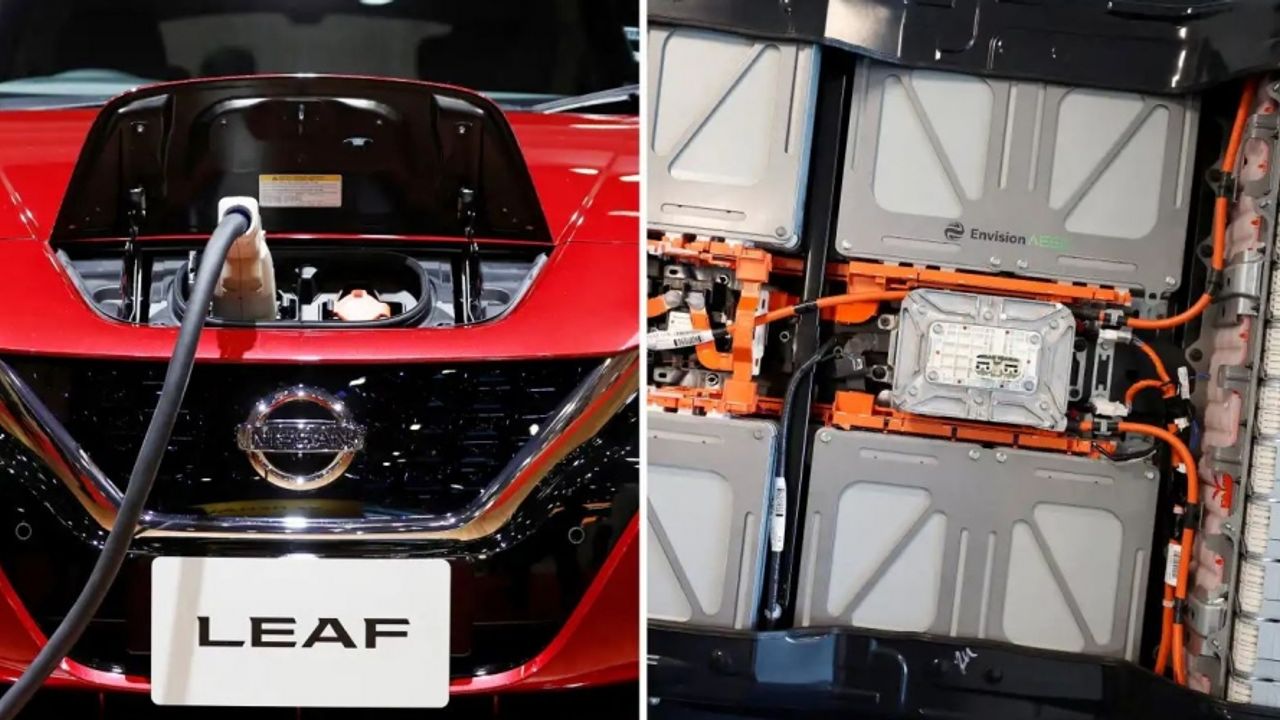TOKYO -- Car and parts makers are working to develop more sustainable batteries for electric vehicles, part of efforts to reduce total carbon emissions, trace the lifetime of their products and cope with tighter global regulations.
Executives from Nissan Motor, Denso and Bosch this week shared the roads they are taking to carbon neutrality at the Japan Ceatec expo.
Nissan is focused on reducing carbon dioxide emissions in the production of battery cells by replacing the current fuel mix that provides its electricity with renewables. The automaker has expanded a solar farm at its Sunderland plant in the U.K. and seeks to run the entire factory with electricity sourced from green energy rather than fossil fuel.
"Twenty percent of the plant's energy comes from on-site renewable sources, and all Nissan Leaf [EVs] sold in Europe are made by renewable energy," Senior Vice President Toshihiro Hirai said at the expo.
Hirai also presented a concept for a circular battery economy in which each electric vehicle battery is also used as a storage battery. Later, if its condition has not deteriorated too much, it is put into a second car. More deteriorated batteries can live a less-taxing second life. When a battery reaches the end of its life, its elements are recycled. Hirai said the process will reduce battery costs.
Nissan's EV batteries already provide power when a natural disaster turns off the lights. In addition, used automotive batteries play a role in local microgrids, where they smooth out grid management.
Nissan will "expand our initiatives" to material recycling and subsequent reuse at material levels for next-generation automotive batteries, Hirai said.
Nissan and other auto companies are coming up against increasingly stricter battery regulations around the world. The European Union last December made a series of proposals that cover manufacturing, design, labeling, collection and recycling throughout every battery's life cycle.
Beginning on July 1, 2024, only rechargeable industrial and electric vehicle batteries for which carbon footprint declarations have been established will be allowed to go to market in the EU.
Parts makers are also having to find ways to cope with tightening environmental regulations. Denso, Japan's top auto parts producer, is working with blockchain technology to try to track a battery's history, from how it was made, to how often it is charged and discharged, to how much it has deteriorated.
Blockchain tech, which prevents information tampering, can give exact traceability to automakers, suppliers and consumers. Chief Technology Officer Yoshifumi Kato said Denso has come up with its own system that marries blockchain tech to QR codes. The system manages all battery materials and components, and information can be easily read with a smartphone.
Kato said the system would allow "customers to fully rely on secondary batteries." It can also keep track of all the carbon dioxide emitted due to each battery, from production to disposal.
Bosch, meanwhile, is working on a solid oxide fuel cell. The company in April announced it would invest 1 billion euros ($1.16 billion) in fuel cells by 2024; the batteries would be multipurpose.
Klaus Meder, president of Bosch's Japan subsidiary, said it is important to reduce emissions when transporting battery components, producing the batteries themselves and recycling them.
Electric vehicles are considered crucial if humanity is to reduce the amount of pollution it emits, but producing lithium-ion batteries for EVs generates carbon emissions. Mining lithium, cobalt and other raw materials is energy-intensive and environmentally destructive. The mining of cobalt is particularly problematic as it is often tied to child labor and human rights abuses.
Recycling and reusing EV batteries is expected to hasten the shift to electric vehicles.












